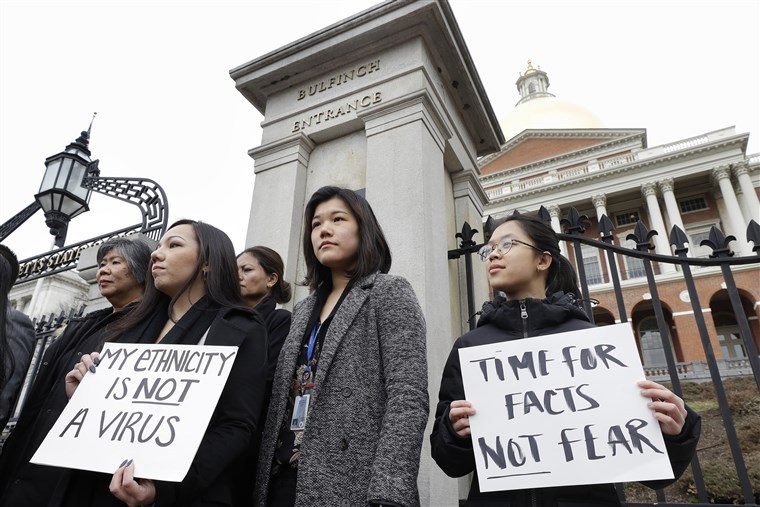By Bruna Ragona
Following the start of the pandemic, Asian American communities have been largely impacted across the United States. Due to a rise in anxiety and fear surrounding the novel Coronavirus outbreak, Asian businesses have been hit extremely hard. People have begun avoiding Asian businesses out of fear of contracting the virus, causing many businesses to shut down. But where did the stigma begin?
Many believe it is from misinformation about the virus itself, and the use of language used by former President Donald Trump while he was still in office. Trump’s use of slurs when referring to the virus, such as “China-virus” and “KungFlu” invoked fear centered around Chinese-Americans. Since February 2019, Asian Americans and Pacific Islanders have become targets of countless hate crimes across the United States, with the majority of the victims being Asian elders and women.
“It is very scary for us Asian people. I try to be careful all the time. I don’t feel safe,” says Satomi Moreira, a Japanese international student at the Spanish American Institute, living in Astoria, New York. For many people like Satomi, their reality and sense of public safety has completely shifted since the start of the pandemic.
CUNY LaGuardia Community College student Keanu Costas, who is currently a commercial photography student, shares that he and his family “…[doesn’t] take the subway at late hours anymore.” While Keanu is one of countless students in the U.S. taking remote classes, allowing him to have to take less public transportation trips, it isn’t the same reality for others. For many people, taking public transportation is unavoidable.
Eric Wang, a Chinese citizen who lives in Flushing, shares that he has heard from friends that “many Chinese businesses are closing earlier to avoid taking late public transportation.” Mr. Wang, like many within Asian communities, depend on exchanged information to stay up-to-date with the ongoing issues: “Chinese people share information with each other, like through [I]nstagram. In China we have WeChat, so they show and put some news up there.” Alliance amongst Asian communities has been beyond helpful in staying updated. Most people are finding out about anti-Asian crimes through friends/family and social media outlets like Instagram.
The lack of coverage by big news outlets, has become a huge concern for Asian Americans. Keanu shares the reality of most, “I found out through [I]nstagram, and other Asian American friends. I didn’t find out through the news.” For many, Asian Americans, the lack of news coverage is concerning. Some believe by not appropriately covering and informing citizens of the occurrences and correcting misinformation, it ends up fueling the anxiety amongst Americans.
While major news outlets have lacked media coverage, many people have taken upon themselves to try to bring awareness of the issue through social media. Many celebrities, such as actress Olivia Munn, have taken responsibility upon themselves to use their platforms to reach a wide range of followers, in hopes of help in regards to the ongoing xenophobic attacks. Munn turned to her Twitter platform to request that her followers help identify a man who had attacked her friend’s 51-year old mother in Flushing, Queens, causing her to get stitches.
Social media outlets have done what many Asian Americans believe that the news media took too long to do: Bring awareness to the misinformation about Covid-19, and provide support to the Asian communities.











